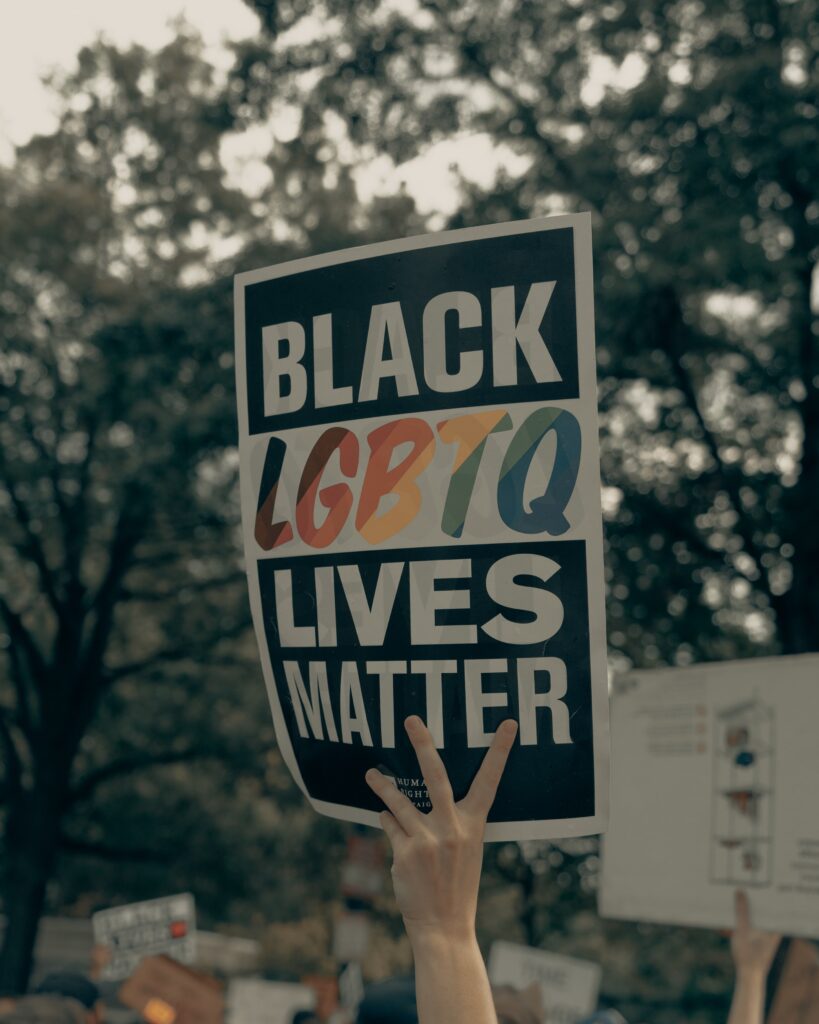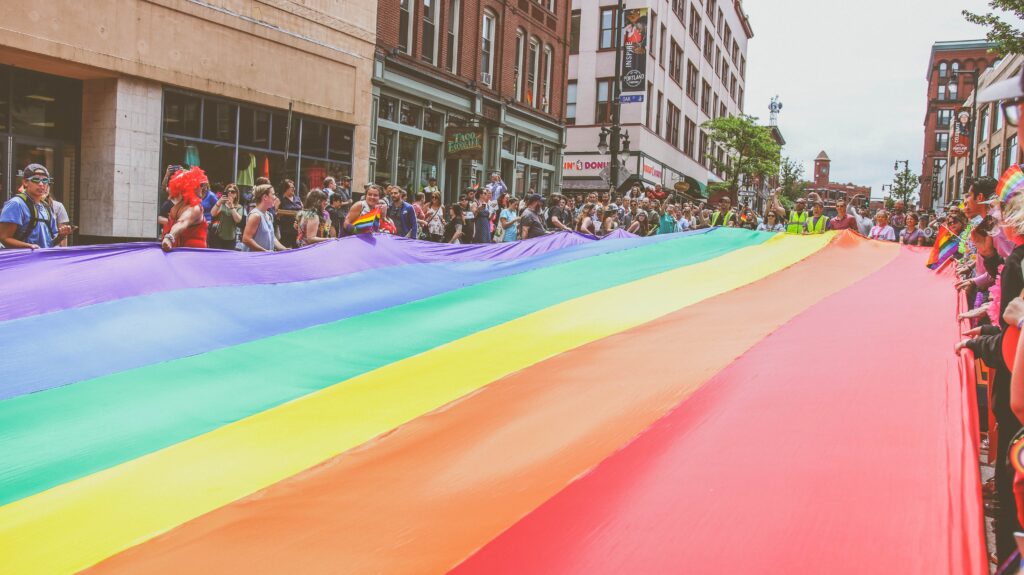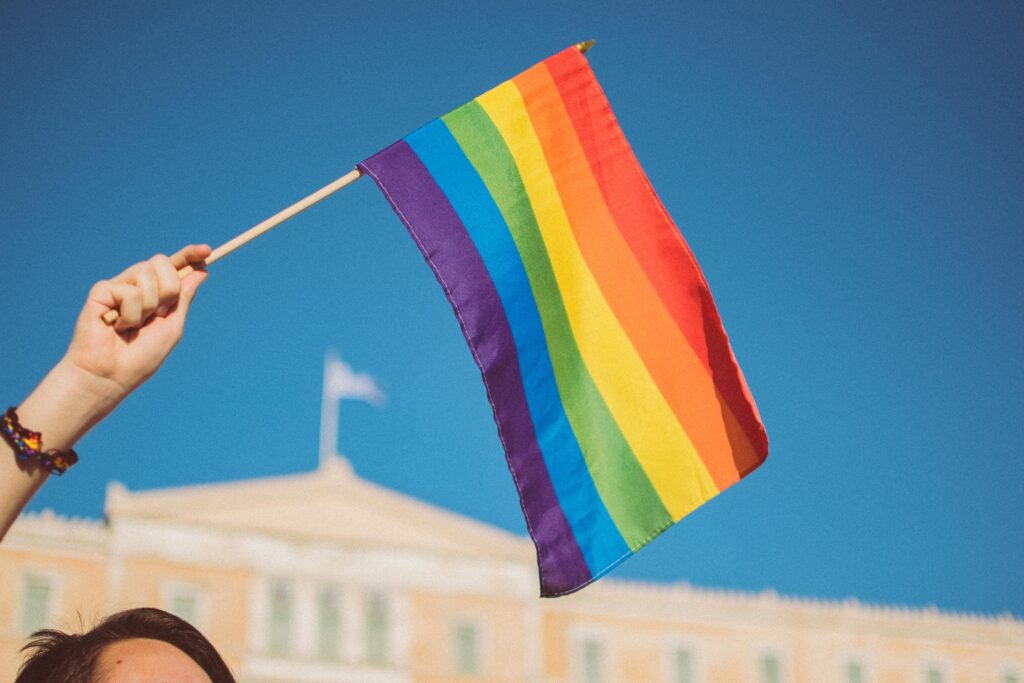Why we (obviously) need the Equality Act
As inequality widens, the Equality Act becomes more elusive — and it’s the only thing that will protect our community as a whole.
The economic gap between LGBTQ Americans and their straight and cisgender peers is widening, threatening to engulf whole sectors of the queer and trans community in entrenched poverty with little access out. Statistics proffered in new studies show that within the queer and trans community, Black and Latinx people, people under 30, and people over 50 are in trouble financially due to the pandemic. That trouble is extensive: people have lost jobs, homes and healthcare. In addition, LGBTQ people face a much harder road back from the impact of the COVID-19 pandemic than their non-LGBTQ peers due to workplace and other discrimination. Compounding the problem for LGBTQ people is a government in stasis on their civil rights.

As LGBTQ people get poorer and their lives more disrupted, the promise of the Equality Act appears ever more elusive. Both President Biden and Vice President Harris campaigned on signing the Equality Act into law as candidates. On Inauguration Day Biden reaffirmed his pledge to sign the act into law in his first 100 days. But in recent weeks, Sen. Joe Manchin (D-WV), the most conservative member of the Democratic caucus, has signaled he’s not on board with the Equality Act as currently written. On March 18, Manchin said, “I strongly support equality for all people and do not tolerate discrimination of any kind. No one should be afraid of losing their job or losing their housing because of their sexual orientation.”
But Manchin also voiced his concerns that the law was too broad and offered too many protections, giving LGBTQ people too much leeway to live their lives as freely as anyone else. “I am not convinced that the Equality Act as written provides sufficient guidance to the local officials who will be responsible for implementing it,” Manchin said. What? Why would “guidance” be needed to enforce a law that would give LGBTQ people the same protections Manchin and his straight cisgender cohort were born into?
In a 50-50 Senate, with VP Harris as the tie-breaking vote, Manchin’s vote is essential when no GOP senators have signaled support for the Equality Act and many have argued strenuously against it. Only three Republicans voted for it when it passed the House in March, down five Republican votes since it first passed in 2019 and then went to die on then-Senate Majority Leader Mitch McConnell’s desk in the Senate, never even coming to committee for debate.

Parallel the shaky position for this key legislation against the studies from the Movement Advancement Project (MAP) and Human Rights Campaign (HRC) on the declining economic and social status of LGBTQ people in the pandemic and the future looks grim for many. According to data from MAP, LGBTQ households, especially those headed by Black and Latinx LGBTQ people, experienced disproportionate, negative impacts due to the COVID-19 pandemic. The report shows that, as a direct result of the pandemic, these households experienced higher rates of job losses, serious financial problems, issues accessing health care, and increased challenges navigating at-home learning for their children, as compared to non-LGBTQ households, with these disparities heightened for Black, Latinx, and low-income LGBTQ people.
“The pandemic has disrupted life for all of us. Yet, decades of discrimination on the job, in health care, and beyond, combined with uneven legal protections around the country make LGBTQ people more vulnerable to pandemic-related instability and insecurity, with an even more devastating impact on LGBTQ people of color,” said Ineke Mushovic, Executive Director at MAP. LGBTQ people and their families will likely continue to face stark, and disproportionate impacts on their economic security and their physical and mental health,” MAP asserts.
“It’s clear that the COVID-19 pandemic has amplified and exacerbated disparities that existed before the pandemic. LGBTQ people were more likely to struggle with economic stability and have challenges with access to health care prior to COVID, and that’s even more true now,” said Logan Casey, Policy Researcher at MAP. Yet despite this data, Manchin doesn’t view the Equality Act as essential civil rights law that needs passage immediately. Manchin isn’t alone. Republican-led legislatures and Republican governors are pushing anti-LGBTQ laws to circumvent the Equality Act.
Anti-LGBTQ legislation has become a focal point of the Republican Party since January, suggesting that the new culture wars will pivot off LGBTQ discrimination and that Republicans running for office in the 2022 midterms will be using these issues to bolster their campaigns.
As of March 31, more than 60 anti-LGBTQ bills are before legislatures nationwide, according to the American Civil Liberties Union (ACLU), which lists anti-LGBTQ rights laws currently being proposed. These bills fall under a range of categories, but all are discriminatory and dangerous to LGBTQ lives. And all would be illegal, were the Equality Act to be passed. These laws as proposed are wide-ranging, including overall restriction of health care and social services to LGBTQ people, so-called “bathroom bills,” single-sex facility restrictions, bills excluding trans-identified youth from athletics, restrictions on identification documents, religious exemption bills, religious exemptions in heath care implicating LGBTQ people, religious exemptions in adoptions and foster care, religious exemptions in schools and student organizations, and bills pre-empting local protections against discrimination. And these laws are being passed. Arkansas, Tennessee, Mississippi and Alabama have already passed restrictive anti-LGBTQ legislation in recent weeks and those laws could propel others into passage.Yet there is no counter to the literal perils LGBTQ people are facing since the pandemic.

One of the most alarming statistics in the MAP study is that LGBTQ households are four times as likely to face food insecurity as their peers. Two-thirds (66%) of LGBTQ households had at least one serious financial problem since the pandemic began, with nearly all (95%) Black and 70% of Latinx LGBTQ households experiencing serious financial problems since the pandemic began. Nearly one in five (19%) of LGBTQ households reported that they were not getting enough food to eat every day, compared to 5% of non-LGBTQ households. More than 1 in 8 (13%) LGBTQ households have lost health coverage since the pandemic began, more than twice the rate of non-LGBTQ households (6%). One-quarter (25%) of LGBTQ households were unable to get prescription drugs, or delayed doing so, for a major health issue during the pandemic and a startling 38% of LGBTQ have been unable to get needed medical care or delayed getting medical care for a serious issue.
These data are harrowing for queer and trans people of all ages, but the stats on medical care and hunger impact people 50+ dramatically.
While passage of the Equality Act isn’t a cure-all for centuries of discrimination, it certainly offers critical protections that would allow queer and trans people access to social services and healthcare they are currently routinely denied, as well as opening such services to directly focusing on the needs of queer and trans people who are in crisis.
That one person could single-handedly stymie civil rights for millions is a devastating possibility. And yet at the most vulnerable time in recent U.S. history for millions, that is where we are: On a precipice, looking down, not up.






